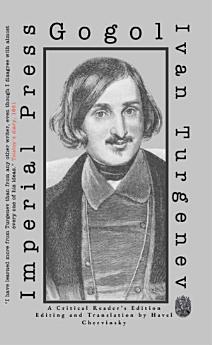Gogol
About this ebook
This piece was published soon after Gogol’s death, so much so that Turgenev was briefly arrested for his unreserved praise. The obituary lauds Gogol’s originality and pathos, noting the tragic contradictions of his life. It implicitly critiques a culture that feared and suppressed such an avant-garde spirit. In Turgenev’s hands, Gogol’s memory becomes emblematic of alienation: the author’s own cautious admiration suggests a shared sense of estrangement from the official order.
This critical reader's edition presents a modern translation of the original manuscript, crafted to help the reader engage directly with Turgenev's works through clean, contemporary language and simplified sentence structures that clarify his complex ideas. Supplementary material enriches the text with autobiographical, historical, and linguistic context, including an afterword on Turgenev’s history, impact, and intellectual legacy highlighting the personal relationships that shaped his philosophy (focusing on Dostoevsky, Tolstoy and Gogol), an index of the philosophical concepts he employs (emphasizing Realism and Nihilism) a comprehensive chronological list of his published writings, a brief biography, and a detailed timeline of his life.










